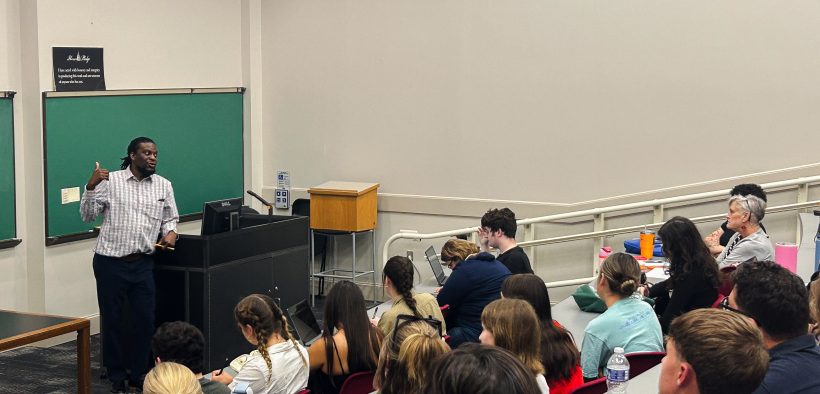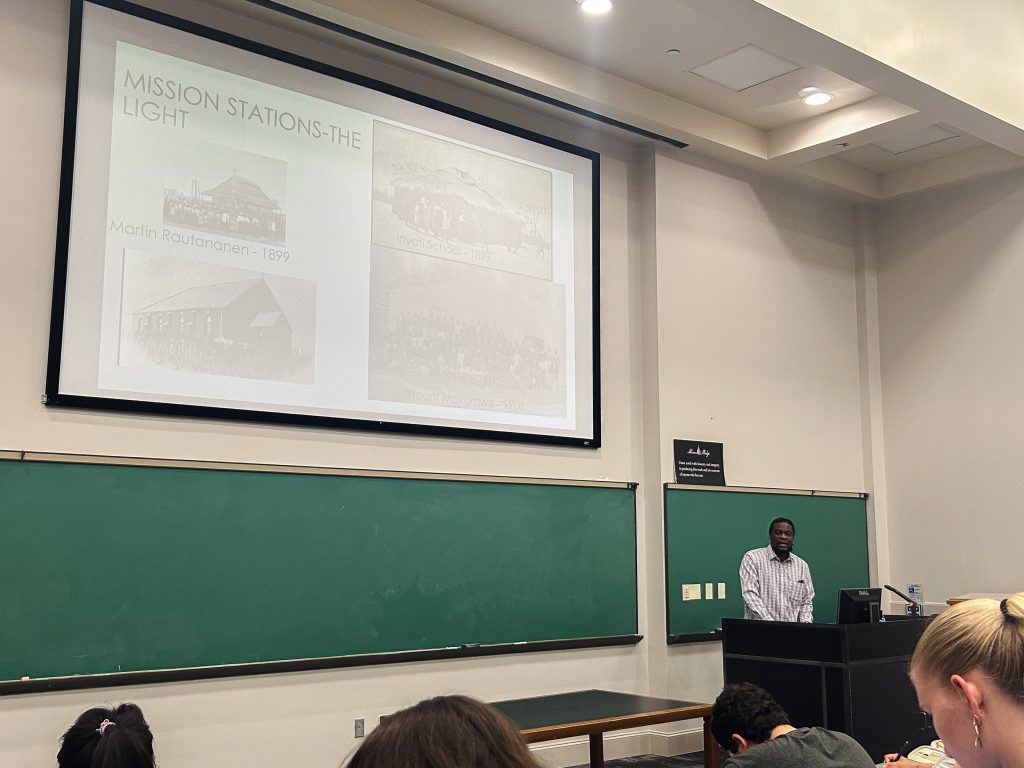Speaker Feature: Dr. Magaya, Christianity, and Culture in Southern Africa
Share

On Tuesday September 16th, seats quickly filled in Olin 110 until only standing room was available, all to welcome in the annual History Colloquium, hosted by Southwestern University’s very own History Department. The guest speaker for that afternoon, Dr. Aldrin Magaya, visited from DePauw University in Indiana, and his talk for that day featured the work he did on the ground in various South African communities. Dr. Magaya is a historian with accreditations from the University of Iowa in African Studies and the University of Zimbabwe.
Magaya told the story of learning to integrate with local communities in Zimbabwe, after hearing the locals’ stories and building friendships with religious leaders in the community. He also mentioned how his approach to face-to-face community research was frequently dismissed by others working in the archives and academia for the Zimbabwean government.
Magaya painted a firsthand picture of what he referred to as plural “Christianities” in Southern Africa, and explained the steps that local leaders took to blend indigenous beliefs with the forms of Christianity that so many communities in the area abide by. His research took him down the path of earning the trust of community leaders and elders, and even ended with him becoming an adoptive son of the community.
While he observed the blending of old and new religions in the region, Magaya also tied direct links between colonization and some practices and taboos in African communities, particularly around biomedicine. Dr. Magaya explained that some local churches would expressly prohibit its members from checking into hospitals, because of the role that hospitals and western medicinal practice played in colonial Africa, which many communities are still wary of. But in many other cases, local traditions would take the opposite approach and begin to describe their healing ceremonies as “surgeries” or adopt traits and terminology from western medicine.

Still, Dr. Magaya went on to demonstrate how older traditions were often supplanted by the growth of “megachurches” in Zimbabwe, many of which teach what’s called “prosperity gospel”. “Prosperity Gospel” is the idea that financial and physical wellbeing are caused by God, and therefore particularly giving money to the church will increase one’s wealth. Many of these megachurches are overtly tied to government or political movements, with some even telling their attendees to vote for particular candidates. With the growing role of religion in politics in America, such as the establishment of the White House Faith Office, criticized by many Americans concerned with the separation of church and state, the example of megachurches in Zimbabwean politics caught the attention of many listeners eager to make a connection to their own experiences at home.
In his exploration of the past and present of the Southern African religion, Dr. Magaya speculated on the future changes that may await Africa as the continent grows its influence in a new globalized world. Magaya expressed skepticism at the sustainability of “megachurches” in the country,especially when looking at their relationship with political parties like Zimbabwe’s ZANU-PF, which has dominated the country’s politics for decades.
The annual History Colloquium brought a vivid and present exploration of the “Christianities” of Southern Africa to SU’s campus. Listening to the lecture provided, both a glimpse into the religion of another culture and a refreshing and real-world reminder of the living history that serves as the foundation of a human experience that crosses continents.
